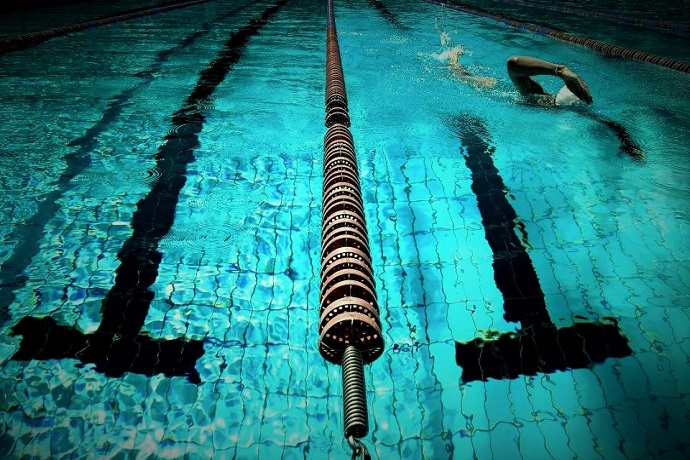
The Olympic Games are in full swing. It’s all very exciting, but watching athletes compete in events, with what seems like superhuman ability, whilst we sit on the sofa, can make us feel a bit inferior. So how can we approach our lives in a more Olympian way?
Where did it all begin?
The first records that mention the Olympics, reveal that they took place in 776 BC, in Olympia, although many historians believe that they predated this. The Games were developed as a celebration of the Greek gods and took place every four years, during a festival to honour Zeus. Records show that a race was the only event, but after several years, longer races were introduced, followed by competitions including wrestling, javelin throwing and chariot racing.
The Olympic Games continued when the Roman Empire took control, but the competition was eventually accused of being a pagan festival and banned. It wasn’t until 1500 years later, that the idea of an Olympics came back into fashion. After being championed by Frenchman Baron Pierre de Coubertin, the modern Olympic Games were first held in 1896, in Athens. 13 countries competed in events including tennis, fencing and gymnastics, with Greece taking home the highest number of medals. There were no gold medals like today, with winners instead presented with an olive branch and a silver medal. 1924 saw the introduction of the Winter Olympics, which included ice skating and ice hockey.
Although designed to please the gods, the Ancient Greek Olympic Games also showcased the physical abilities of the men taking part. Now inclusive of women and athletes from countries from around the world, the Games still celebrate athletic achievement and the mental strength needed to succeed.
What does it take to be an Olympian in 2016?
We’re not all born with the physical abilities to win on the global stage, but we can think about what makes top athletes leaders in their field and apply that to our own lives.
Diet
In 2008, it was reported that American swimmer Michael Phelps had a mammoth diet, amounting to thousands of calories a day, including three fried egg sandwiches, a pizza and three pancakes. Eating giant portions may only work for athletes that burn them off as fast as they take them in, but it does tell us that matching your eating habits to your lifestyle is important. Scientists have discovered that eating the right types of food can affect your concentration levels and your mental health, as well as preventing weight gain. Taking care of our mind and body, with the right nutrition, is something simple that we can all do, without taking it to Olympian extremes.
Sacrifice
Being an Olympic athlete could never be described as a hobby. It takes years of dedication for athletes to get to the top of their game and stay there. Only those who really want it, make it. It’s often not just an athlete that has to make sacrifices, but also their whole family. Many past athletes have revealed the physical pain they experienced in the pursuit of getting to the top. Although risking your long-term health is never a good idea, what this does tell us, is that some forms of sacrifice can be necessary in life. Finding a few hours a night to study towards a new career, might be sacrificing a social life temporarily, but the long-term benefits make it a worthwhile investment in your future.
Motivation
No gold medals have ever been won by people who couldn’t motivate themselves to get up in the morning. Motivation is something which comes from within and affects every aspect of our lives. An Olympian attitude is all about pushing yourself to reach your personal goals and not giving up if you don’t, at first, reach them. Failure is difficult, especially for athletes, but finding the motivation to keep going is crucial. Some of the highest achievers in sport are not physically the strongest, but they do have the biggest drive to succeed. Your thoughts, positivity and mental strength, can get you a lot further than you think. We can’t all win gold medals, but personal success is possible for anyone.
Focus
Developing a routine is key to making sure you continue moving towards your goals. In the same way that athletes must stick to a tough training regime, scheduling in time for reaching your own targets, will make a difference. Finding moments to study can be difficult, so it’s important that family and friends respect that you’re taking a bit of time for yourself. Deciding upon regular study slots helps. Whether you select one evening a week, or schedule in an hour a day, being strict with yourself, and following a pattern, works. You also need to make sure your study environment isn’t slowing you down. It’s very easy to lose focus and let your mind wander, so experiment with things like light, space and the room you’re in, to discover what works and what doesn’t.
Competitiveness
It goes without saying that for an Olympic athlete, it’s not the taking part that counts. Having some level of awareness of those around us and a desire to win, is healthy and can see us pushing ourselves to achieve greater things. Even if you’re not a competitive person, you can compete with yourself to improve and be the best you can be. Choose someone that you admire and want to be like, such as an athlete, or someone closer to home, and strive to follow in their footsteps. Think about what makes someone you aspire to be, successful.
Do things the Olympian way this year. You may not be in Rio to compete for your country, but you can learn from the attitudes of the men and women that are and find the mental athleticism to take on anything.
Whether it’s a sprint, or a marathon, with Stonebridge’s flexible courses, you’ll have our support all the way to the finish line.






Leave a Reply